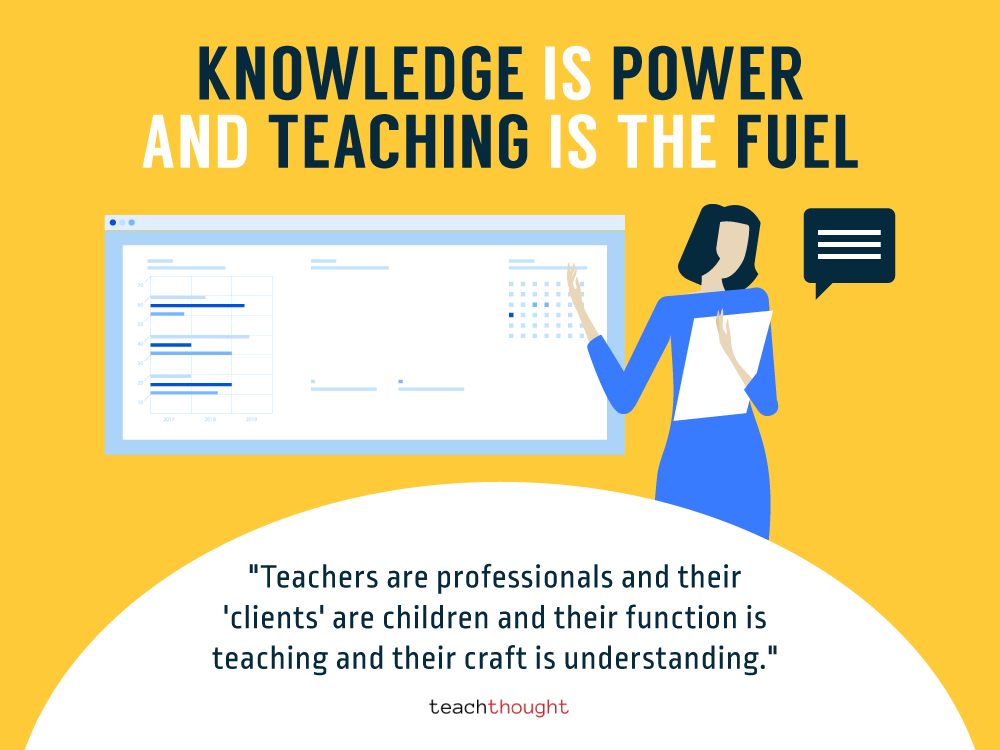If Knowledge Is Power, Then Teaching Is The Fuel
by Terry Heick
That knowledge = power isn’t a new idea.
’Knowledge is power’ is a common refrain in the education community, at least in spirit. The idea that knowledge changes lives and that accordingly we can change the world underpins everything that we do as educators.
And that teachers are important is, on paper, equally well-known. In the United States, as a profession teaching ranks somewhere around retail workers in terms of prestige and pay. Here, in the land of Capitalism, insurance-as-boom, and pure industrialism, doctors, lawyers, CEOs and, increasingly, start-up entrepreneurs lead the way in terms of ‘power careers.’
The discussion of why that’s the case—and how it affects students—would be worth discussing. But for now, let’s just accept that teaching is A) Important and B) Under-valued culturally. It is impossible to believe otherwise.
Instead, let’s look not at how under-appreciated and under-paid and under-supported teachers are, but rather their effect on the world. For a metaphor, let’s consider a flexible and general one: If knowledge is power, then teaching is the fuel for that power.
Teachers are professionals, their profession is children. Or rather, their clients are children and their profession is teaching and their craft is understanding.
Or maybe their craft is teaching and their profession is knowledge, and the arcs of the lives of students are their product. But that’s a little abstract.
Students are people and people, not technology, change the world if for no other reason than people create the technology, manage (to whatever degree they do) the technology, and suffer or thrive because of its effects.
People can’t create technology that changes the world without knowledge. Knowledge is information in context—knowing not just how to calculate the speed of light, but why. Knowing what happened during World War I, but also understanding how that knowledge is valuable; knowing what conditions existed to allowed something as terrible as the world’s first global war to occur, and what the fallouts since have been.
Without context, knowledge is just information. With context it becomes knowledge, and knowledge applied and reflected on over time becomes wisdom. That’s the sequence.
Knowledge is how problems are identified and opportunities are created.
Knowledge is what grows in people—capable of increasing or reducing suffering and ignorance and racism and love and hope.
Knowledge also grows out of people—pulses out in the form of words said and unsaid, actions performed and unperformed. Volition and apathy. This growth is kinetic and dynamic and always happens in a place and with an audience and to an effect. Knowledge vibrates.
Knowledge is movement and power, and knowledge is product, purpose, effect, purpose, and craft of teachers. It’s what teachers do.
As people use knowledge—as teachers do in using their own knowledge to help others create theirs—the world changes. This is, at first, not a good change or a bad change, but a primal change.
Knowledge precedes everything that isn’t happenstance. Knowledge is intent, and teachers spend every bit of everything they’ve got every day to help people create their intent.
Knowledge is power and teaching is the fuel.

